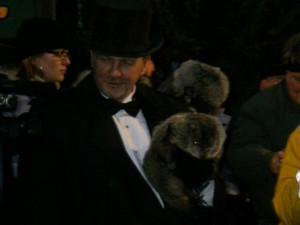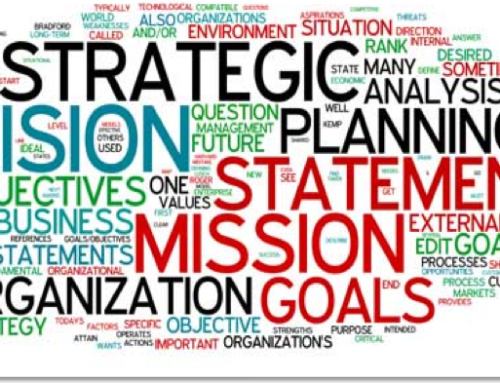Happy Groundhog Day, WUL readers!
If you are anything like me, you’re a big fan of the once famous Bill Murray movie surrounding one of the littlest celebrated holidays in American culture.
It’s a day when a small number of people in Pennsylvania wait to see whether or not a rodent of the family Sciuriade “thinks”certain meteorological conditions will persist for six weeks or if inhabitants of the northeast US will be able to break out their flip flops a little early.
This annual ritual, if taken seriously, leaves a slew of questions for any hard-nosed reporter who can’t take a joke:
- For starters, how do we know if Punxsutawney Phil is afraid of his shadow or something else?
- Have scientists developed some unusual way of communicating with groundhogs or translating their grunts or gibbering into language as we know it today?
- And who exactly are the top hat-donning handlers, known as the Inner Circle, who take care of Phil?
And why do we listen to a groundhog when it comes to weather conditions?
Wouldn’t a bird, a creature who spends everyday in the higher portions of the atmosphere, or a fish, who might have a chance at reading ocean currents, be a better representative when it comes to animals predicting temperature in the near future?
To be clear, I’m not taking a cheap shot here. Phil’s got a 39% batting average, which would make him the best hitter in baseball history, but a piss-poor weatherman. He’s also a pessimist and a coward, having seen his shadow 99 out of 115 times.
To be fair, he is a cute little bugger. Furthermore, I’m not sure humans are all that much better when it comes to prediction. Oh sure, we may be a bit better when it comes to long-term weather forecasts, but a groundhog doesn’t raise crops. Human beings have been waiting for flying cars and moon colonization for years, all to no avail.
In fact, prediction itself has come under plenty of criticism in recent years.
Famous author and former finance trader Nassim Nicholas Taleb has most famously shellacked Wall Street thinkers and modern economists for models that supposedly represent reality. Taleb sold plenty of books, as professionals have come to realize that guessing the performance of the 2012 orange crop in Florida isn’t exactly sound grounds for a bet on which the retirement savings of thousands of Americans may rely.
So what does that have to do with PR?
Essentially, our industry is in the best position to take an agnostic approach to uncertainty. Communication is more about mastery than it is about projection.
While the executives we represent are saddled with the perhaps impossible task of charting organizational futures, we take charge of charting organizational message.
Does that take some degree of foresight and an attempt to guess where public dialogue is headed? Certainly. Presenting a message that goes stale is never good for anyone.
But if we are good at our jobs and see communication as a skill set (and I’m guessing most of us do), then we ought to be able to make messages interesting, adding inherent value to the approach of our clients in ways that require little to no fortune telling.
This is great news. I sympathize with the sleepless PR agent who has to explain the rather pathetic misdeeds of organizational mismanagement or ethical lapses, just as I sympathize with those the organization has wronged…
… but at least I know I have better sense than to attempt clairvoyance, trust a shadowy cast of characters in top hats or run away from my own shadow.
In other words, at least we’re not Phil.
Image: faz the persian via Flickr, CC 2.0

![[EVENT]: PR Hacks for Small Biz (online)](https://shonaliburke.com/wp-content/uploads/2021/06/FB-Ad-1200x800-01-01-01-Copy-500x383.jpeg)








[…] Dan Cohen published a terrific guest post here on WUL riffing off of Groundhog Day, where he made the point that “communication is more […]
Thanks very much for the thoughts! @Erin F. I’ve thought about mastery a lot in respect to professions such as PR, economics and others with extreme variables. When you can’t predict the future with pinpoint accuracy, it gets pretty hard to plan everything perfectly. Communication, in this case, mitigates potential wildfires. Mastery makes me think of becoming sage-like so that, even if we can’t stay on top of everything like a car mechanic or a test prep tutor (disclosure: I make money teaching people how to beat standardized tests), we can at least respond accordingly. @HowieSPM Proactive response is something I definitely favor, even if I’m such a grumpy pessimist about prediction. To that end, I anticipate that Phil is going to get play in 2013, too! At least we have a Bill Murray movie to thank for him. BTW… I get the sneaking suspicion you might have had some headaches trying to get upper management involved in the past. Am I on target here?
@Shonali The Komen case is a good one (your piece on it is excellent, timely and relevant). Anticipation and projection are certainly elements of what we do, but what I like about good communication skills is that they are sort of like your own reserve. That way, you don’t have to see a storm coming. You just have food, flashlights and batteries ready to go when it does. And in the meantime, try not to start the fire yourself (like Komen did). Do you think Komen can rebuild, or is this pretty much game over? (Look at me asking for predictions).
@Daniel J. Cohen Thanks! As to Komen rebuilding, I think it would take a lot to knock it down entirely. I do think they have lost some critical ground from a trust perspective, and that is going to take some time – and smart planning, acting and REacting – for them to regain.
Part of that means tracking and listening, which they evidently weren’t doing before the storm broke. And that’s what I meant in my post (and my earlier comment) about prediction having its place in our world… but it’s not about looking into a crystal ball (or listening to a groundhog), it’s about using research, understanding your publics and using your knowledge and mastery, as you put it, to anticipate as many potential outcomes as you can… and plan accordingly. @Erin F. @HowieSPM
Perhaps the groundhog needs to take mastery of his communications? ;-)
I do like the idea of mastery. It makes me think of owning one’s words and taking responsibility. Doing those things tends to make a person a little more circumspect, which can allow for projecting and forecasting. If you’re responsible for what you’re saying, you’re more likely to take the time to do some research and to ensure that you’re saying reasonable (and sometimes right) things.
[…] Dan Cohen published a terrific guest post here on WUL riffing off of Groundhog Day, where he made the point that “communication is more […]
I like your take Daniel. A good company has PR integrated so that they can help prevent crisis management being needed vs reacting to everything. And I think a good PR Pro or Team will be able to convince upper management to involve them with more hands on steering of everything from reputation to message proactively vs reactively. And this is a talent you can learn vs taking a shot like Mr. Phil does.
BTW we always focus on 6 more weeks of winter if he sees his shadow. And forget if he doesn’t Spring comes right on time…in 6 weeks LOL
@HowieSPM I guess he saw his shadow today? Someone needs to tell Maryland, ‘cos it’s beautiful here!
Dan, I do agree communication is more about mastery… though, if we start to be really good at what we do (note I said “start to be”), we start – I think – to be able to forecast and project as well. But that is based on experience and research, not shots in the dark. Since it’s the topic du jour, take the Komen/Planned Parenthood issue today. How could Komen NOT know the uproar this was going to cause? Which makes me wonder just how much forethought they put into their overall communications, outside their masterful (thus far) corporate partnerships and Walk.
I wonder what kmueller62 would have to say…
@shonali Thanks for the Tweet, Shonali!
@shonali If I come today and see my shadow, does that mean I have to watch Bill Murray movies for six more weeks?
@robb_wexler You’ll have to ask @mrdancohen about that!
@shonali @robb_wexler Against my advice, Phil has decided to reserve comment on that issue. Still waiting for a callback from Mr. Murray.